|
 |
|
Welcome |
|
Rajasthan
Tours |
|
|
|
|
|
|
|
|
|
|
|
|
|
|
|
|
|
|
|
|
|
|
|
|
|
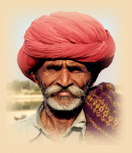 |
|
|
|
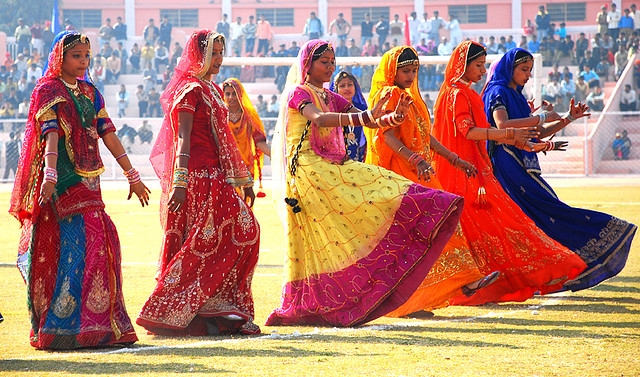 |
|
Ghoomar Dance |
|
Introduction of Ghoomar Dance |
|
People of Rajasthan perform dances to express their emotions. These
folk dances of Rajasthan display the rich culture and heritage of the
land.
The Ghoomar dance is a very Popular and a community dance of women in
Rajasthan. It is performed on various favorable occasions like fairs &
festivals. It is called as `Ghoomar`Its name is derived from the word
`ghoomna` of Ghaghra i.e. the flowing of Ghaghra, a long skirt of the
Rajasthani women. The performers in Ghoomar dance bend their colorful
ghagras that are rich in embroidery work and it is also embellished
with mirror-work.
There is a wonderful charm as the skirt style slowly while the women
folk turn around in circles, their faces covered with the help of the
mask.
Rajasthan has a large variety of dances, which are simple rustic
expressions of celebration and festivity. The dancers, with their
brightly colored costumes have make Thar the most colorful desert in
the world with each region adding on to the tradition, its own form of
dance styles and performers.
|
|
Performance
of Ghoomar Dance |
|
The Ghoomar dance is the distinctive dance of the Bhils and a
community dance of the Rajputs, which is performed traditionally only
by the women. It is considered as one of the traditional ceremony
among this society. So, a bride is expected to dance Ghoomar after
being welcomed at her husband`s home on the occasion of marriage.
Women from any age group, whether young or old can take part in
Ghoomar dance. There are simple influential movements with special
kind of footwork, to express the spirit of any favorable occasion.
Sometimes this dance may go on for hours or the whole night. While
dancing, the dancers move in a circular direction with clockwise and
anti-clockwise steps. The performers sometimes join their hands and
even clap their hand in-between. The performers move elegantly on the
beat of the songs in steps., The dancers swirl fleetly as the tempo of
the dance increases.
The performing arts of Rajasthan are in fact very rich in their
traditional background and speak of a race that have passed through
stages tribal primitiveness to move on to a brave feudalism triggered
by the rise of the Rajputs as a class of royalty.
The large space of the Thar Desert of Rajasthan comes alive with the
visible relief of its brightly dressed citizens; and when its dancers
take the center stage, you just cannot stop tapping your feet. The
Ghoomar Dance Rajasthan is one of the most popular folk dances in
Rajasthan.
|
|
Dress Code of Ghoomar Dance |
|
The Women’s perform the Ghoomar Dance in the circles and
they are dressed in the traditional Ghaghra and choli with chunaris.
They decorate them selves in traditional silver jewelry and glass
bangles. The Ghoomar is performed during women's gatherings like the
ceremony of haldi during a wedding, or to entertain a queen in her
personal quarters, etc.
The popular Ghoomar Dance in Rajasthan India is the distinctive dance
of the Bhil tribe. However, it is mainly linked with the royal ladies
of Jaipur, who perform it on certain fortunate occasions. The Kachwaha
Clan of Rajputs, who ruled Jaipur, defeated the Bhils and later agreed
for a quiet coexistence. It is therefore usual that the royalty would
accept some of the Bhil customs and practices. The Ghoomar dance is a
essentially a women's dance performed by the women for completely
ladies' assembly.
The Bhils were a type of war-like tribal race. At first they made the
highways and roads a hazardous place for Jaipur's traders and masses.
Whenever the Kachwaha has tried to discipline them, they simply
disappeared into the corners of the Aravallis which have been their
home for centuries. Realizing the uselessness of this exercise, the
Kachhwahas claim for peace and exempted the Bhils were from paying
tribute which was however, not a very big deal since the Bhils were
most unlikely to pay. In any case, after this incident, the Kachhwahas
accepted the Bhils as friends of the royalty.
The dances of Rajasthan are evidence of royal legends, religious
traditions, and myths, while some dances other are performed with the
simple idea of celebrating a particular festivity or fair.
|
|
|
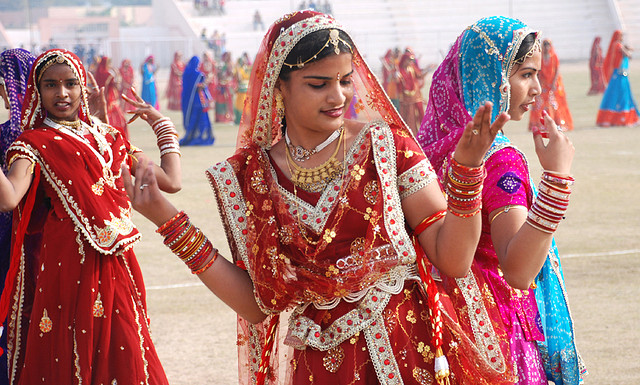 |
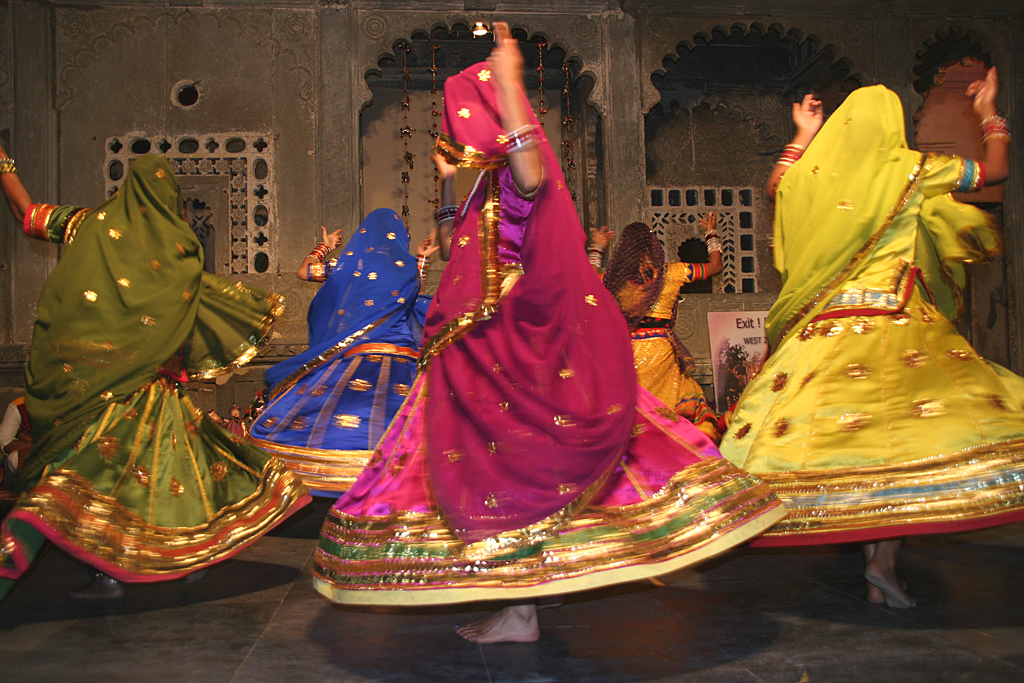 |
|
Ghoomar Dance of
Rajasthan |
Ghoomar Dance of Rajasthan |
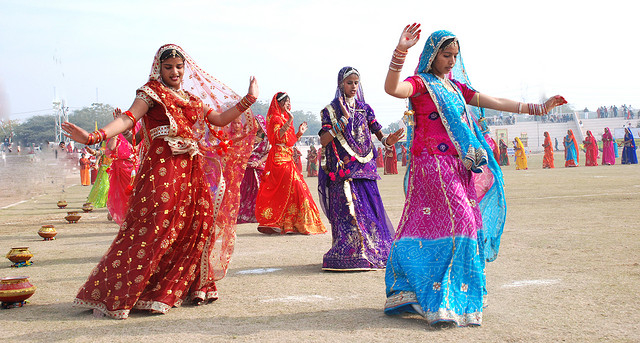 |
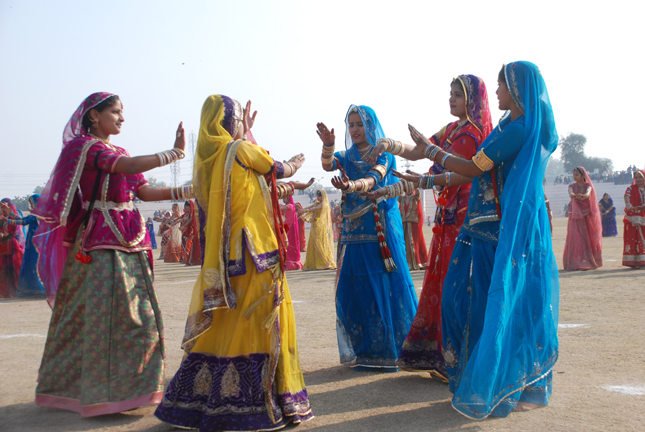 |
|
Ghoomar Dance of Rajasthan |
Ghoomar Dance of Rajasthan |
|
|
|
|
|
|